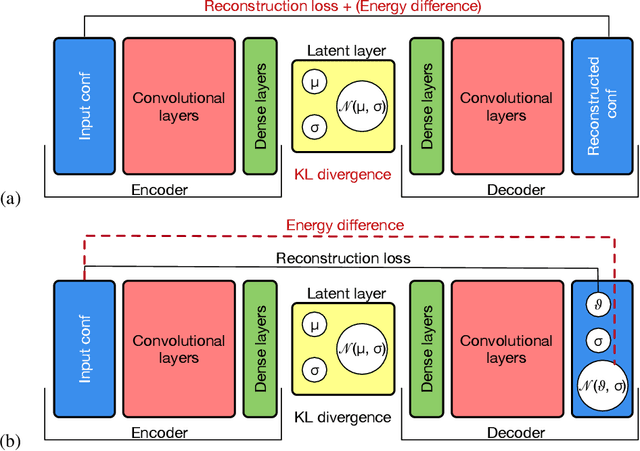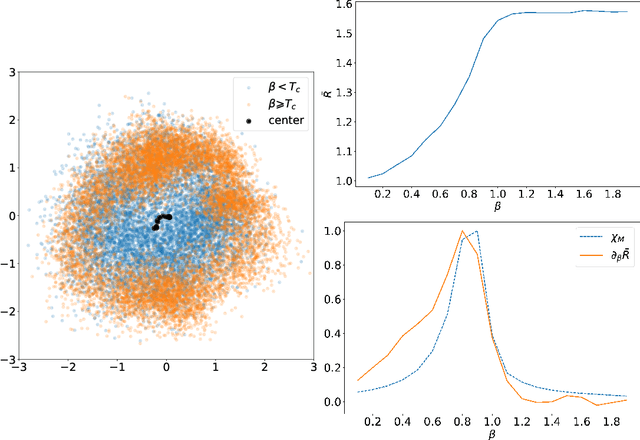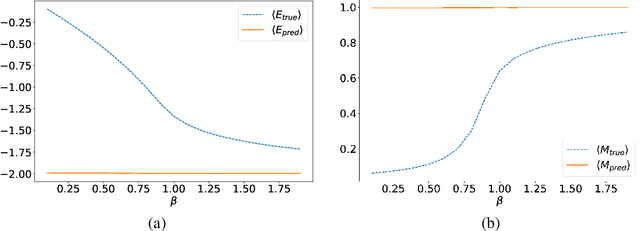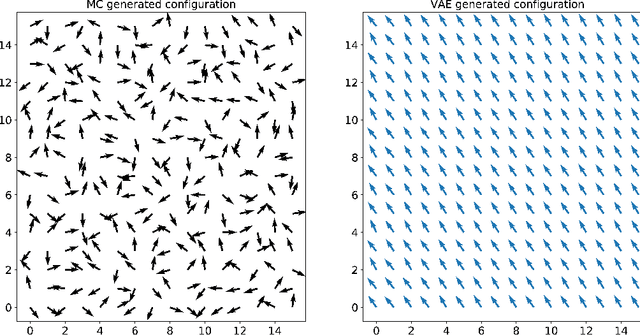Towards meaningful physics from generative models
Paper and Code
May 26, 2017



In several physical systems, important properties characterizing the system itself are theoretically related with specific degrees of freedom. Although standard Monte Carlo simulations provide an effective tool to accurately reconstruct the physical configurations of the system, they are unable to isolate the different contributions corresponding to different degrees of freedom. Here we show that unsupervised deep learning can become a valid support to MC simulation, coupling useful insights in the phases detection task with good reconstruction performance. As a testbed we consider the 2D XY model, showing that a deep neural network based on variational autoencoders can detect the continuous Kosterlitz-Thouless (KT) transitions, and that, if endowed with the appropriate constrains, they generate configurations with meaningful physical content.
 Add to Chrome
Add to Chrome Add to Firefox
Add to Firefox Add to Edge
Add to Edge